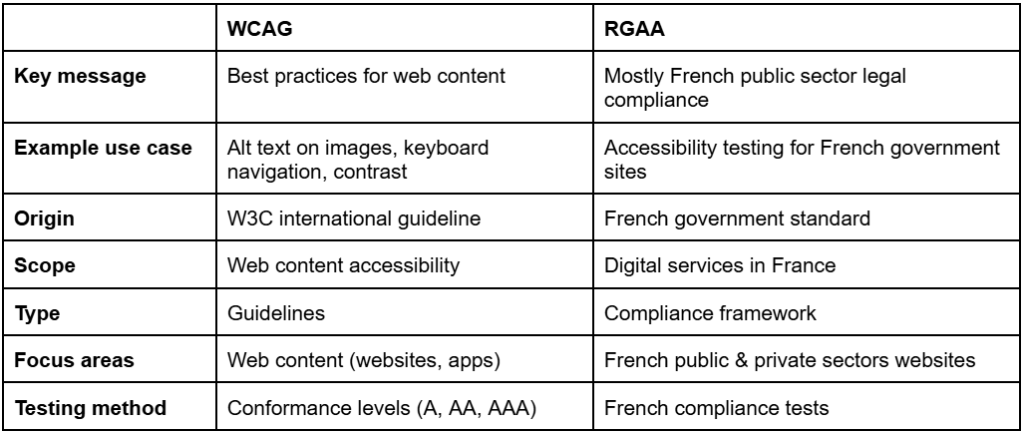If you work in accessibility in France, you’ve probably come across RGAA. And if you’re collaborating internationally, you’re almost certainly using WCAG. But what’s the actual difference — and why does it matter?
When I first started working with both, I was surprised by how much overlap there is — and how different they feel in practice.
WCAG is the international framework from the W3C — principles-based, flexible, and widely used around the world.
RGAA is France’s official standard, based on WCAG but shaped for the French legal system, with specific interpretations and mandatory test procedures.
Understanding the standards
I created a visual comparison that breaks down: what each standard actually covers, which ones are legally binding and where, how to apply them in real-life digital products:

Watch the difference in action
I recently tested a real button from a website — same content, same purpose — and ran it through both WCAG and RGAA.
The result? It passed WCAG. It failed RGAA.
Not because it was broken, but because RGAA expects deeper semantic precision. Here is a full video with an online analysis: https://youtu.be/nTXR9JfnCl4
Why this matters in 2025
With the European Accessibility Act (EAA) becoming enforceable in just a few weeks (June 28, 2025), this matters more than ever — especially for private companies who’ve never dealt with RGAA before.
If you’re designing, developing, or auditing digital services in France or across the EU: you need to know how these standards diverge and how to meet both.
Further reading
WCAG 2.1 (the international standard for web accessibility, developed by the W3C. Foundation for most accessibility laws worldwide)
RGAA 4 (France’s official accessibility framework, based on WCAG but with specific legal requirements and detailed testing methods)
European Accessibility Act (EU-wide directive that makes accessibility mandatory for many digital products and services, enforceable from June 28, 2025)
NVDA screen reader (a free and open-source screen reader for Windows, widely used for testing accessibility and by blind users worldwide)

Leave a Reply